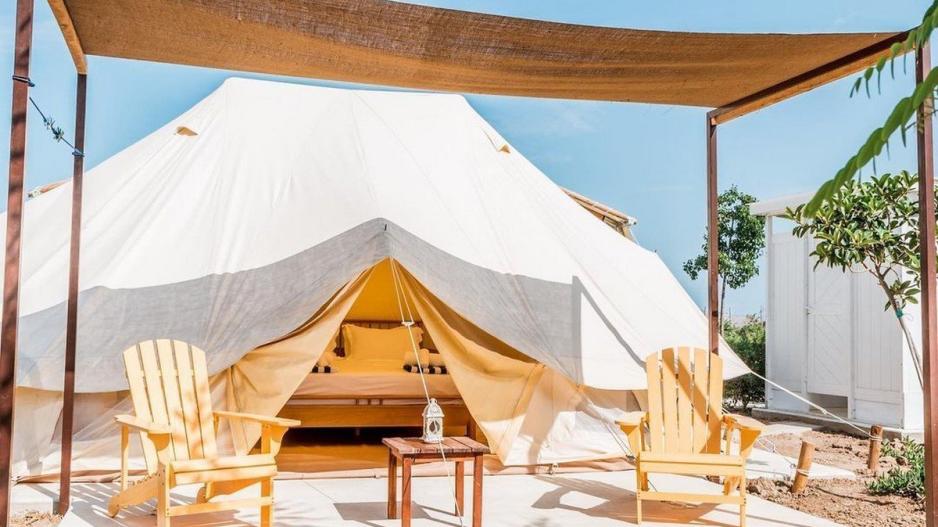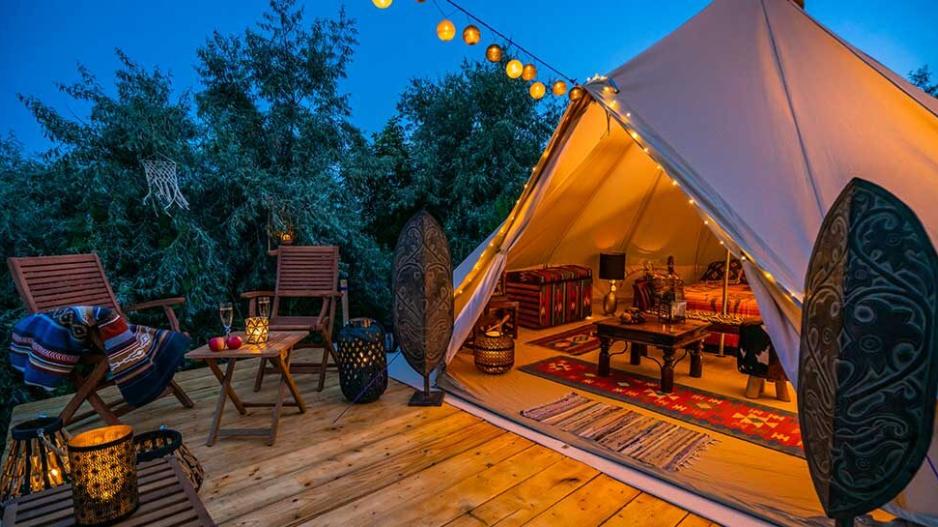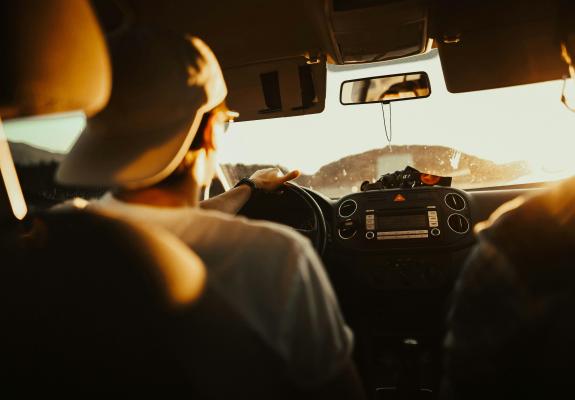Reviving the Draft Legislation for Tourist Campsites and Luxury Glamping
As Brief reports, the draft legislation for the operation of Tourist and Luxury Campsites, specifically the "Glamping" category, is making a comeback in the Parliament after an approximate six-month hiatus. This particular draft was initially prepared by the Deputy Ministry of Tourism but was rejected by the Parliament's Plenary last summer. Following this setback, the Ministry incorporated suggestions from the Committee on Commerce, Industry, and Tourism of the Parliament and made necessary revisions to the draft, resubmitting it in November of the following year.
Although the issue underwent discussions in the Committee in November, it reached an advanced stage for presentation to the Plenary in December, but ultimately remained pending.
Now, the matter is resurfacing, and after thorough discussion within the relevant Committee, it is expected to soon return to the Plenary for voting. There is even a possibility of the issue being addressed by the Plenary before the Parliament adjourns for the summer recess.
Multiple investors have shown keen interest in establishing luxury campsites. However, it is emphasized by the Ministry that stringent inspections will be in place to ensure their compliance with the necessary regulations and the provision of services as stipulated by the legislation.
The primary objective of this draft law is to introduce modifications to the existing Law on the Regulation of the Establishment and Operation of Hotels and Tourist Accommodations. The proposed changes aim to modernize the provisions governing the establishment and operation of tourist campsites. Consequently, these campsites will be categorized into different classes: luxury, Class A, Class B, and uncategorized, similar to other types of tourist accommodations.
At the same time, the draft legislation aims to regulate the creation and operation of luxury campsites known as "Glamping." This emerging trend in global tourism involves offering luxurious accommodation experiences in natural surroundings. By implementing these specific measures, it is anticipated that they will enrich the overall tourism product, facilitate further development in mountainous and rural areas, and attract new segments of the tourist market.
The overarching goal of the proposed legislation is to elevate the status of tourist campsites through their classification as luxury campsites, with the "Glamping" category occupying the highest tier. Subsequently, luxury campsites, Class A campsites, and Class B campsites will follow suit.
In essence, the additional provisions and modifications introduced during the revision of the initial draft aim to ensure the safeguarding of wildlife and the natural environment. Special emphasis is placed on strict adherence to the management plans of areas within the "Natura 2000" network. By doing so, the objective is to minimize any potential adverse environmental impacts arising from the operation of campsites. It is important to note that the fundamental principles guiding the draft legislation regarding the operational standards and services offered by luxury campsites remain unchanged.

Additionally, the Ministry of Tourism has introduced a provision requiring luxury Glamping campsites to obtain mandatory certification from the EU Ecolabel, two years after obtaining their operating license. This certification guarantees that these campsites actively prioritize environmental preservation and wildlife conservation.
Here are further details about Glamping luxury campsites:
According to the proposed legislation, "glamping" refers to fenced-off areas situated outside residential zones. These areas provide visitors with a luxurious nature-focused accommodation experience, with or without dining options.
These campsites are meticulously designed, featuring well-defined spaces equipped with a variety of high-quality camping facilities. These include themed tents, treehouses, frame and tented cabins, as well as other aesthetically pleasing, ground-based or elevated themed accommodations. All structures are constructed using top-grade materials that are environmentally friendly and easily assembled or disassembled. Furthermore, these campsites must possess a valid operating license in accordance with the current laws and regulations, while also meeting the required standards.
The proposed legislation outlines several specifications that Glamping campsites should offer, either as mandatory or optional amenities. These include access to electricity, hot and cold water, cooking facilities, toilets, sinks, showers, laundry facilities, and regular cleaning services for shared areas. Additionally, guests can enjoy complimentary Wi-Fi, outdoor fitness facilities, on-site grocery stores, recreational centers, jacuzzis, comfortable beds, and other furnishings. To ensure safety and security, these campsites also provide adequate nighttime lighting, fencing, and site surveillance.
Importantly, it's worth noting that the recommended revisions from the parliamentary committee include making outdoor fitness facilities optional rather than mandatory for both Glamping luxury campsites and luxury tourist campsites.






